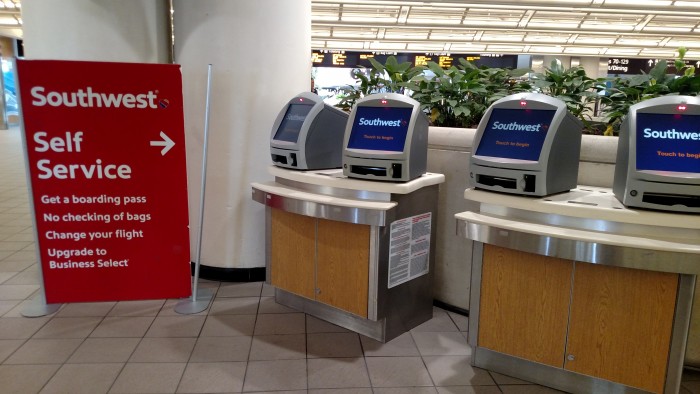What’s the Deal with Travel Insurance and COVID-19?
Right now is a very interesting time in the travel industry, and it is certainly an interesting time to be planning a vacation. There is some uncertainty in the air and many are wondering what options they have to protect the money they’ve invested into a vacation if they end up needing to cancel it. Here I have pulled together some different resources in hopes of making it a little easier for you and your travel party to decide what is best for your individual situation.
It is important to keep in mind this post is meant to help you review the available options and information, not to persuade you one way or the other. It is also important to note that all health-related decisions should be made by consulting your physician or medical professional. Finally, please refer to the Centers for Disease Control and Prevention and other official organizations for information pertaining to the novel coronavirus or COVID-19.

Does Travel Insurance Cover Canceling Out of Concerns Over Coronavirus?
The short answer is no, most travel insurance does not cover canceling out of concerns over coronavirus. Most travel insurance policies cover unforeseen circumstances. In the case of COVID-19 this is a known issue that has been in the news for more than a month and will take time to run its course. Many travel insurance companies are saying that canceling due to the Coronavirus is not a viable reason to receive a full, or even a partial refund. A select few companies are providing at least a partial refund to those that purchased their policy before COVID-19 was well known and clearly a topic of widespread news.
In summary, there are practically no policies available now that would cover the Coronavirus. If you purchased the policy before this virus was well known then you might have a chance at receiving a refund. It seems January 22, 2020, is the date most companies are using. If you purchased your policy before this date you will certainly need to check with your specific travel insurance company.
What Is Travel Insurance?
Travel insurance is an additional purchase, a plan that can assist in protecting from certain financial losses that can occur while traveling. Some of these losses can include a delayed suitcase, a last-minute trip cancellation, or a medical emergency.
Plans do vary. It’s important to read through the plans thoroughly and choose a plan that fits your needs, your budget, and your travel plans. Travel insurance does not cover every single possible situation. The vast majority of plans cover only specific situations, events, and losses included in your plan documents. Travel insurance is designed to cover unforeseeable events— not things you could easily see coming, or things within your control. If, for example, you wait to buy insurance until after a named hurricane is in the forecast to potentially impact your destination, your losses wouldn’t be covered. The key to travel insurance is unforeseen circumstances.
The best option to look into during this time of uncertainty is Cancel for Any Reason Coverage. This type of coverage is going to be costly. However, there are now so many travel deals appearing that it may work out well. You will still want to read and verify if epidemics and pandemics are covered reasons. If a travel alert is already active in the area to which you want to travel, this policy may not cover coronavirus expenses. The key is to have purchased the policy before the coronavirus alert extends to your destination.

When In Doubt, Ask.
If you booked through a Travel Agent, contact them directly with any questions regarding cancellation. If you booked through a third-party website such as Hotwire, Priceline, Expedia, etc. you will need to contact them directly – though most deep discount sites have a no-cancellation policy.
Airlines and lodging companies have more flexible policies that many folks realize. Some airlines have now put specific policies in place in response to the Coronavirus. JetBlue is waiving fees on bookings made between February 27, 2020, and March 11, 2020, for travel through June 1, 2020. This way you can plan travel and if something changes you won’t be charged extra fees. It is important to read each travel provider’s policy and if you are unclear on specifics, call them directly. If your chosen airline does not have a flexible cancellation policy in place it may be worth it to consider a higher, but refundable fare.
If you purchase your trip using a credit card, it can be worth checking the credit card company’s policy on cancellations. Many credit card companies do cover medical quarantine and illness as a reason for provide a refund.
Walt Disney World’s Travel Insurance Webpage states: “The Travel Protection Plan is designed for and is available to US residents. For your convenience, we offer travel protection which can be added to your trip anytime until final payment. Please view your state’s specific terms, conditions and exclusions at www.affinitytravelcert.com/docs/DSP01.”

Some Friendly Reminders
The CDC and the WHO recommend these basic steps to help prevent the spread of respiratory viruses and illness such as COVID-19:
- Wash your hands with soap and hot water for at least 20 seconds, after going to the bathroom; before eating; and after blowing your nose, coughing, or sneezing. If out in busy public areas wash your hands frequently.
- Cover your cough or sneeze with a tissue, then throw the tissue in the trash.
- Stay home when you are sick; contact your health care provider immediately if you think you’ve been exposed to COVID-19.
- Don’t touch your face, particularly your eyes, nose, or mouth.
- Don’t travel if you have a fever and cough.
- Don’t wear a face mask if you are well. Face masks should be used by people who show symptoms of COVID-19 to help prevent the spread of the disease to others.






I am wondering the same thing as DisneyWorld just cancelled my trip minus the travel insurance. As Disney cancelled the trip and not me, the full amount should be refunded.
I have yet to contact AON, BUT I did purchase in December so I might be lucky and get a partial refund…..or who knows I just might be sick and can’t go…..same smoke and mirrors they are pulling on us.
I have a Disney World, Orlando trip scheduled for a time that the park will still be closed due to Covid-19 concerns. I purchased travel insurance for the trip. Disney has agreed to give me a full refund since they will be closed. I think that AON, Disney World’s travel insurance partner, shoud also refund the cost of the travel insurance since it is not me deciding not to go to Dinsey World it is Disney World that has decided to not be open. A Disney World Cast Member said the AON is not refunding the travel insurance cost for trips that were planned for times during which Disney World was, is, or will be closed. What recourse do people in my situation (paid for travel insurance for trips thay cannot take because DIsney World is closed) to get the cost of travel insurance refunded? Is this a class action law suit waiting to happen?